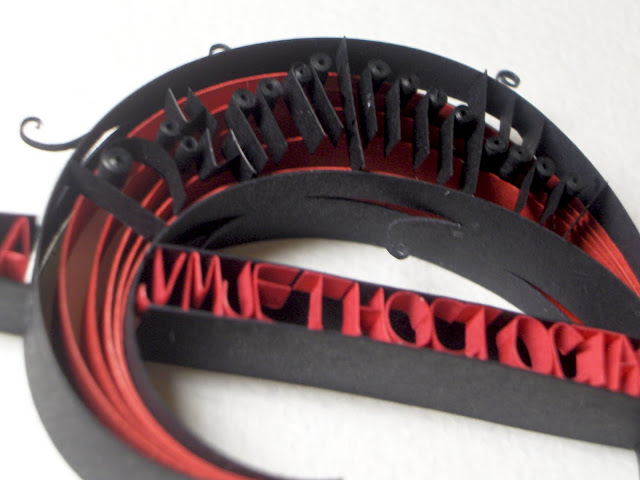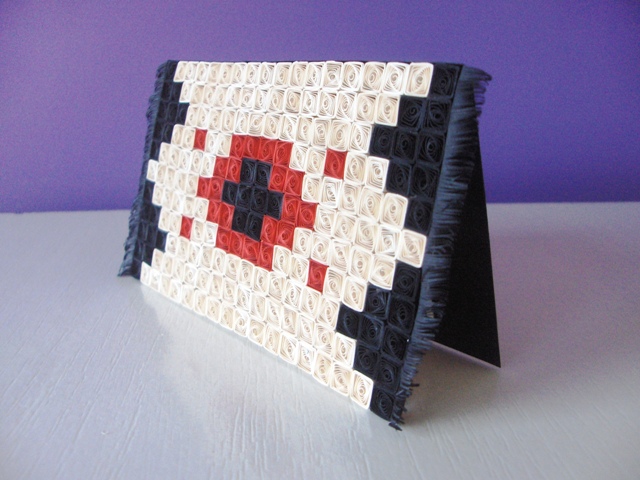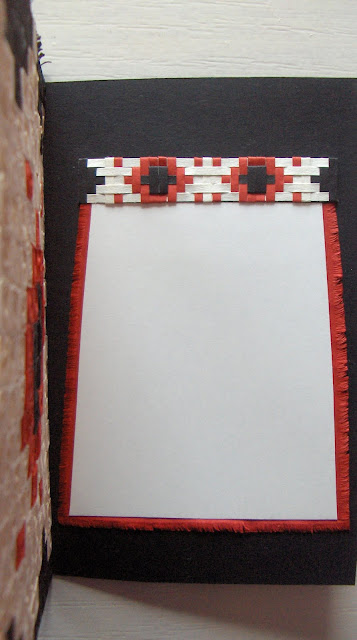I've been asked frequently where I get my ideas. Without any pretensions, and I do hope this wont sound like a cliche, all I can say is that people inspires me. I said before that I don't make any philosophy out of my work but I do involve a lot of emotions ( I even shared a few tears while making some of them ).
I mostly do my cards by order. Some of my clients I know personally, more or less, and there are many I have never met but somehow I do feel like I know them while listening to their wishes and stories. Luckily, they all know what they want, so that makes things much easier to do. Or they just let me to make my own choices, which is also great.
I admit I enjoy most in thinking what to make and when I get the idea I have to make it instantly. It's not always so easy. People order my cards for special events and for their closest family members or friends so I have to think of many things. First, I have to be satisfied with my quilling. Then, I think if customer would be pleased with it and, finally, it has to be the right one for the recipient. But, it seems like I hit the point because most of them get back with new orders.
This framed violin wasn't suppose to be done this way. Every day I listen to a young boy who is a piano player, a great talent so I heard. His name is Filip and I wanted to make Cyrillic letter F ( ''Ф " ) with keyboard on the left and notes on the right side. I changed my mind since it's been awhile since I hanged some framed work on my wall. Letter "F "" is going to be my next one. Maybe.
I've been asked many times how I do my letters. There is not so much difference in this violin key and some of my letters. I decided to show process of making this one. Stripe, the black one that goes around the key, is 200gsm paper, 1.1cm wide. It's perfect for making letters. I rarely use patterns. I'm lousy with brush, pen etc. It's much easier to me to take a scissors and make a shape to avoid drawing.
From these wide black stripes, I cut small shapes and roll it a bit, just to make more dimension. You can see through it's holes, it's kind a cute. I think I'll do this many times in the future. I cut black paper, the same hard one, glue a stripes of ivory and black quilling paper. I have to thank, again, to Marylin for giving me an opportunity to work with quilling paper. It's really magical. I keep it in my drawer, look at it all the time and this was the perfect moment to use it.
So, when I did the keys, I glue it to the stripes of black paper which is pretty difficult to do.
These letters are only 0.5cm high, and the one in cone are maybe even half of it. Yes, I should say what that means! These are words of Ludwig van Beethoven:"Real art lasts for eternity", or something like that.
I like the way red paper shows.
 And, this is it. Thanks for visiting my blog. Enjoy your day!
And, this is it. Thanks for visiting my blog. Enjoy your day!


















